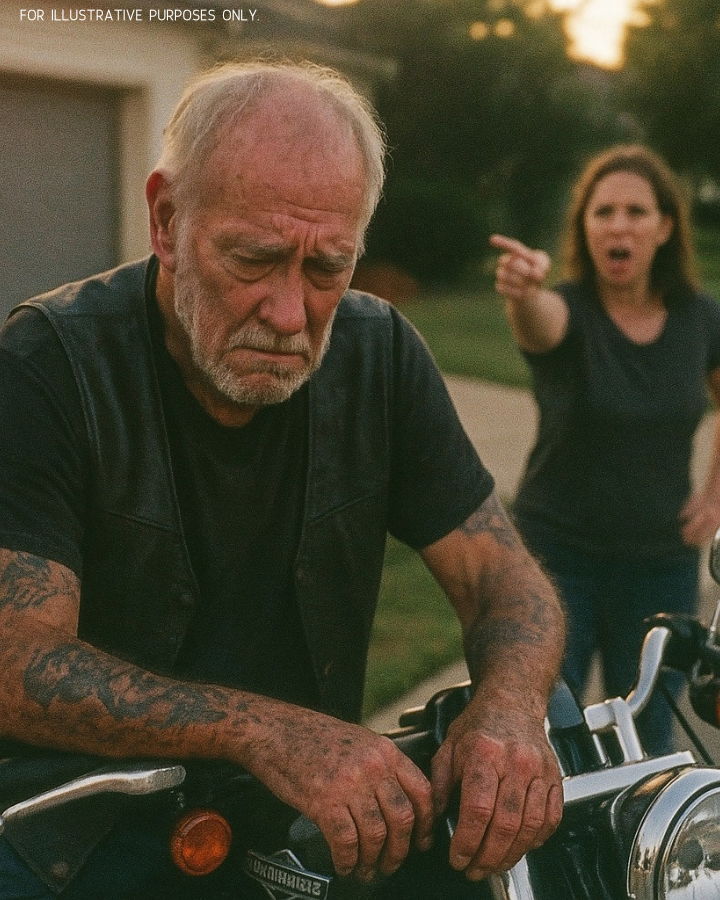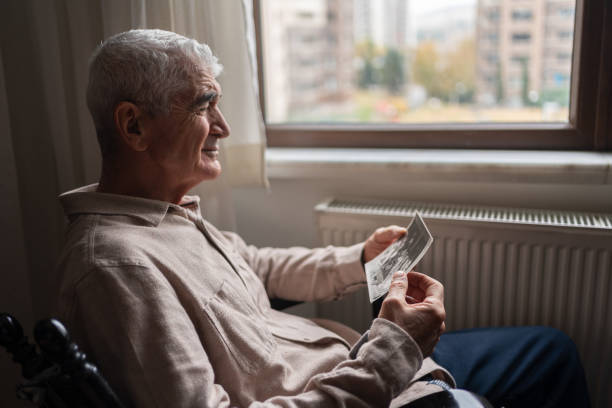
My 73-year-old father just drained his retirement savings to buy a $35,000 Harley-Davidson instead of helping me with my mounting debt.
He called it his “last great adventure,” as if that justifies ignoring his only daughter’s financial struggles.
For fifty years, he toiled away in a greasy motorcycle repair shop, his hands stained with oil, always reeking of cigarettes. He embarrassed me in front of my friends with his old tattoos and biker gear.
After finally selling the shop, I assumed he’d do something sensible—like help me with a down payment on the condo I’ve been eyeing.
Instead, he blew the money on a shiny motorcycle and planned a cross-country road trip.
When I confronted him, he just chuckled and said, “Sweetheart, at my age, all crises are end-of-life crises.”

As if turning 73 excuses ignoring me. I’m 42 and drowning in bills, while he’s chasing open roads and sunsets like he’s still twenty.
I’ve had to cancel vacations and pick up extra shifts, all while he brags about “answering the call of the highway.” My friends agree—parents who have the means should help their kids. But Dad insists this trip is his reward for a life of hard work.
After Mom passed five years ago, I hoped he’d finally grow up.
She had kept him grounded. Without her, he’s slipped back into a version of himself I thought we’d outgrown—beard growing wild, hanging out with his biker club, and now this ridiculous midlife crisis at the edge of old age.
Last week over dinner, I tried reasoning with him. “You don’t need a brand-new Harley. You could buy a modest car, help me with my condo, and still have enough for yourself.”
He just said, “Amanda, I’ve been responsible all my life. I put you through college. Helped you with your first house.”
“That was different,” I protested. “Now I really need help.”
He looked at me and said, “You’re a grown woman with a job. I started with nothing. Your mom and I built everything with our own hands.”
“But you have money now,” I argued. “You could change my life.”
“I already did,” he replied. “By working every day to give you a head start.”
When I snapped that Mom would’ve never let him waste money like this, his face softened. Then he pulled out a photo I’d never seen—Mom, young and wild, straddling a motorcycle with a leather jacket and a smile that mirrored mine.

“She loved bikes, Amanda. That’s how we met. This trip—she’d be riding with me if she could.”
I was stunned. It didn’t match my image of her. But Dad swore it was true. “Before she died, she made me promise not to leave my dreams behind. So this trip—it’s for both of us.”
A week later, I stood in his parking lot, watching him pack up.
His biker friends were there, laughing and sharing drinks, while I stood apart, fuming. He came over with his helmet tucked under his arm, and I tried one last time to make him see reason.
“How can you be so selfish?” I said. “You’re riding off while I’m stuck barely scraping by.”
He looked tired but calm. “I worked hard for this moment. I’m sorry you’re struggling, truly. But this is something I’ve waited my whole life for.”
Then he handed me an envelope. Inside was a check—not enough to wipe out all my debt, but enough to make a dent.

“It’s from selling my tools,” he said. “I thought they should still do something useful.”
Confused, I asked, “If you were going to help me anyway, why all the arguing?”
“Because this was never about money,” he answered. “It’s about you respecting my choice to finally live on my own terms.”
He left that morning, his new Harley gleaming in the sun. I watched the procession of motorcycles vanish down the road, the check still in my hand, wondering if maybe I’d misjudged him all along.
Three months passed.
He sent postcards and called regularly. Slowly, our conversations shifted from awkward small talk to meaningful exchanges.
I began asking questions—about riding, about the freedom he felt. He told me it made him feel alive, like nothing else did.
When he returned, I met him at his apartment. As we unpacked his bags, something changed in me. I saw not a reckless old man chasing youth, but someone finally reclaiming joy after a lifetime of sacrifice.

Sitting together that evening, I looked at him and said, “I think I owe you an apology. For not seeing who you really are.”
He smiled. “We all have blind spots, Amanda. I’m just glad you’re starting to see me now.”